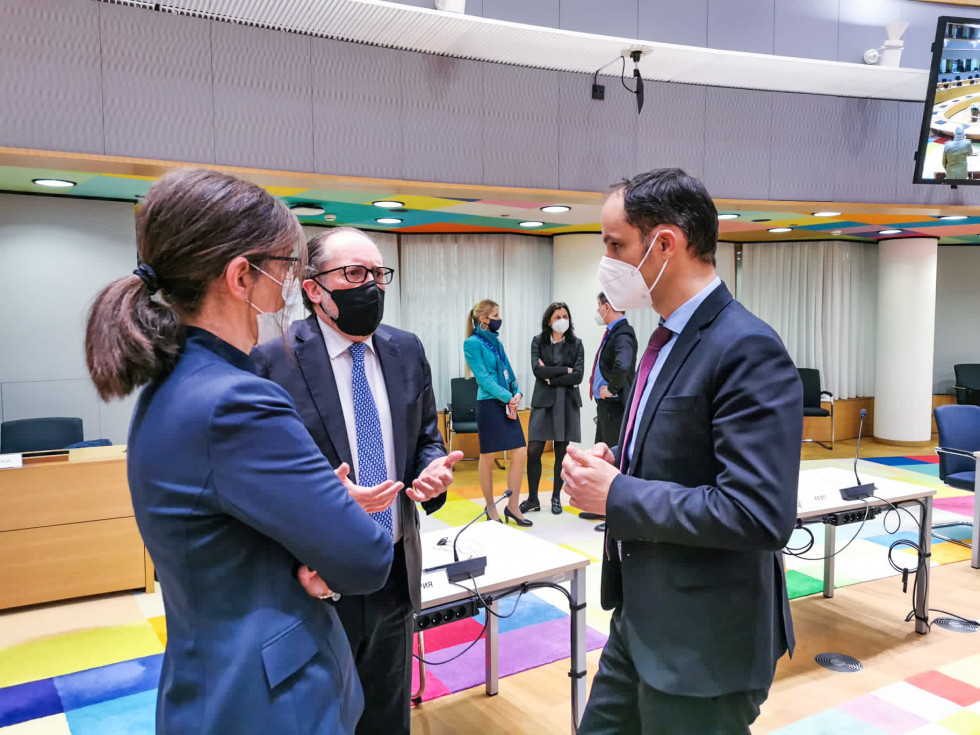Minister Logar backs Ukraine and sanctions at the extraordinary FAC meeting
- Ministry of Foreign Affairs

Minister Anže Logar discussed Ukraine at an extraordinary FAC meeting with EU foreign ministers | Author Ministrstvo za zunanje zadeve
The foreign ministers of the EU member states first listened to the Ukrainian Foreign Minister Dmytro Kuleba, who briefed them on the current situation in Ukraine. The ministers strongly condemned Russia’s military attack, calling it a unilateral and unacceptable violation of the principles of international law and the foundations on which peace and respect for the sovereignty and internationally recognised borders of the countries have been built in recent decades. “The Russian Federation’s attack on Ukraine yesterday is a shocking act, contrary to the Charter of United Nations Organisations and international law,” said Minister Logar following the meeting in Brussels.
The ministers underlined their support for a package of additional EU restrictive measures applicable to Russia and Belarus. The political direction for action was given by the EU heads of state who had a meeting the day before. The sanctions include individuals involved in Russia’s illegal decision to invade Ukraine, Russian banks financing military and other operations in these territories, and Russia’s access to capital and financial markets and EUV services, including restrictions on trade with both separatist provinces.
The ministers also exchanged views on further responses from the EU and allies, both bilaterally and in dialogue with third countries, and in international organisations.
Minister Logar strongly condemned the military invasion and stressed that Ukraine is a sovereign country with internationally recognised borders. Ukraine should be free to choose security arrangements and to enter into alliances. Slovenia therefore supports strong and rapid action at Union level. In line with the request for international assistance, we have provided Ukraine with material assistance totalling EUR 163,000 and transport through the EU Civil Protection Mechanism in recent days. The Ministry of Foreign Affairs has proposed to the Government of the Republic of Slovenia a contribution of EUR 100,000 as an emergency humanitarian response, which will be directed to the urgent humanitarian needs of Ukraine through the International Red Cross and Red Crescent Movement (ICRC).
Russian military activities close to the EU’s external border pose a high security risk and a serious threat to European peace and security. In this regard, Slovenia twice summoned the Ambassador of the Russian Federation in Ljubljana to explain Russia’s actions and conveyed messages of protest against Russia’s attack on an independent state of Ukraine.
At the meeting, Minister Logar also drew attention to the initiative of Slovenian Prime Minister Janša and Polish Prime Minister Morawiecki to provide a European perspective for Ukraine with a concrete timeline, as this represents the best response to current security policy challenges. “Uniform support for the perspective of Ukraine’s membership of the EU can change the course of history. Slovenia proposed Ukraine’s membership until 2030," emphasised Minister Logar.

